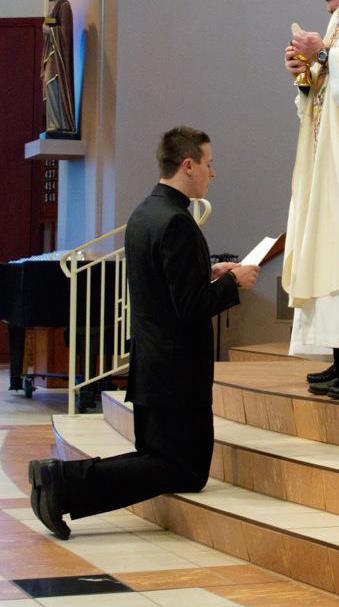 On 7 April my new book God Moments: Unexpected Encounters in the Ordinary will be released by Ave Maria Press. In it I hope to offer you a way to open your heart to God’s presence in your everyday life. You know those moments where a flock of birds stops you in your tracks, or a kind word from a friend makes your day, or when a baby smiles at you from across a restaurant? Those are God moments. They’re encounters with the divine and they point us to a deeper reality: that God wishes to have a relationship with you. Through your experiences and relationships—both good and bad—God takes on flesh and is made real.
On 7 April my new book God Moments: Unexpected Encounters in the Ordinary will be released by Ave Maria Press. In it I hope to offer you a way to open your heart to God’s presence in your everyday life. You know those moments where a flock of birds stops you in your tracks, or a kind word from a friend makes your day, or when a baby smiles at you from across a restaurant? Those are God moments. They’re encounters with the divine and they point us to a deeper reality: that God wishes to have a relationship with you. Through your experiences and relationships—both good and bad—God takes on flesh and is made real.
So far you’ve gotten a taste from three of the four main chapters of God Moments – Awareness, Prayer, and Discernment. I conclude with wholeness because our Christian life always leads to becoming our truest selves in God. We were created to be free and living lives of joy in God. The three previous themes are prerequisites for true Christian wholeness.
God Moments: Unexpected Encounters in the Ordinary is available for pre-order here. Use promo code OTTO for a discount (only good through 31 March 2017).
The Christian search for wholeness only needs to look at the wisdom of Jesus Christ. He is the ideal of what it means to be wholly human. Before God took on skin and became one of us, the philosophers separated the material and the spiritual realms. The world was seen as evil. Human flesh was seen as corrupt and depraved. The spiritual realm was a place the heavenly beings inhabited, where we may never reach because of our depravity. But when God took on flesh, the material world was divinized—made holy. The dualism created by philosophy could not hold up. The line between the sacred and the profane blurred. Sadly, many Christians through the centuries have maintained a harsh dualism between the material and spiritual and forget just how radical the Incarnation was. True wholeness (and holiness) in God’s eyes can be ours as human beings.
Jesus’ teaching on how we can reach true human wholeness is quite paradoxical. A grain of wheat must die in order to produce fruit, he says. We must be (metaphorically) blind in order to see. We must love our enemies. Sell all your possessions and you will be rich. Lose your life to save it.
To be Christian means to die and be reborn into wholeness.
The outwardly facing self may be part of our false self or just part of the picture. After my wedding, I posted many of our professional photos to Facebook, changed my profile picture to the best one of me, and made my cover photo the “perfect moment” of my first dance with Sarah. Whenever something good in my life happened like a trip somewhere or news of a new job or finishing my graduate classes (or getting a book deal), I posted about it. Anyone visiting my profile would assume that my life was all put together. Everything fell perfectly into place. It was picture-perfect. But they only would see a polished picture; they wouldn’t see the broken side, the imperfections in my relationships, the jobs I did not get, or the struggles and occasional boredom with my writing. We all know how annoying it is when people post about that “negative” stuff, right?
We mistake perfection for wholeness. Growing into whole human persons made in the image of God means integrating our entire selves, the strengths and the weaknesses, the joys and the sorrows, the gifts and the imperfections. Who we’re supposed to be comes only partially in our job or career. Our identity is inclusive of those strengths and weaknesses that make up who we are. Here I want to discuss those other parts of who we are in God’s eyes. It is our wholeness—that is, becoming who God made us to be—that more fully reveals the incarnate God to the world.
Pre-order God Moments by clicking this link. Use the promo code OTTO at checkout for a discount (only good through 31 March 2017).
Listen to an audio version of this post…








